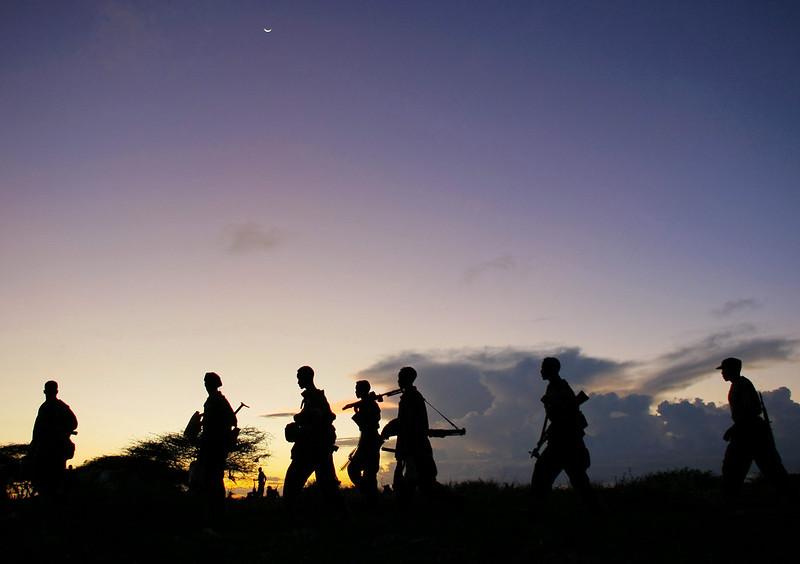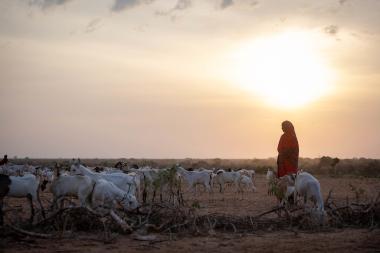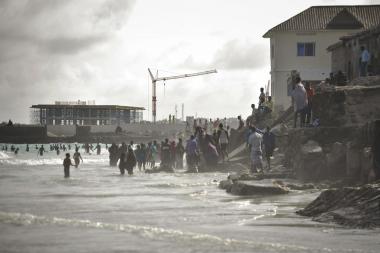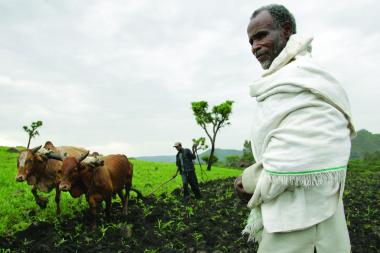Technical report
Building Forward Better: a pathway to climate-resilient development in fragile and conflict-affected situations
This SPARC-funded report, launched at COP28 in December, argues for a new way of thinking about and delivering the climate agenda in fragile and conflict-affected situations.
Publisher ODI

Troops advance during anti-al-Shabaab operation in Somalia
Credit Image by Stuart Price / UN
People living in places affected by fragility and/or violent conflict are among the most vulnerable in the world to climate change. In these situations, a natural hazard – such as a flood or a drought – can quickly trigger disasters and exacerbate protracted crises. Unless these countries transition to climate-resilient development, the gap between humanitarian needs and funding will continue to grow, locking countries into a vicious cycle of perpetually coping with crises.
Produced by ODI as part of SPARC's technical assistance, Building Forward Better: a pathway to climate-resilient development in fragile and conflict-affected situations argues that to build true climate resilience in fragile and conflict-affected contexts will require a transformation in the way humanitarian, development, peacebuilding, disaster risk management and climate adaptation actors work. This Framing Note, released at COP28, argues for a new way of thinking, delivering and financing humanitarian, development, peacebuilding, disaster risk management and climate adaptation action in fragile and conflict-affected situations: one in which programmes and investments by all actors are linked, layered and sequenced in such a way that they mutually reinforce and support each other, and are informed by a clear understanding of the drivers of conflict and climate risks.
Key messages of the report, which takes lessons from SPARC's research, include:
- Advancing the climate agenda in fragile and conflict-affected places requires us to address the underlying drivers of fragility, including conflict, instability, poverty and weak political institutions. These are not challenges which can be solved through additional climate finance alone.
- Instead, actors working in these countries need to move beyond just coping with crises, towards laying the foundations for climate-resilient development. This process can be referred to as ‘Building Forward Better’.
- Building Forward Better requires a new way of working from the multilateral development system: one in which humanitarian aid, development, peacebuilding, disaster risk management, and climate change actors work together to promote peace, stability and systemic resilience in the long term, while continuing to meet immediate needs in the short term.
- To achieve these goals, actors need to make several changes to the ways they design, implement and monitor programmes, including: linking and layering their work across spatial scales, from the community level to the national scale, and sometimes across national borders; sequencing across time scales, meaning that even those interventions which are focused on meeting short-term needs are delivered in a manner that supports efforts to promote stability and resilient socioeconomic growth in the long term; and being risk-informed.
- Encouraging actors to work more closely together is a challenge, but there are a number of existing tools and good practice principles which are important for Building Forward Better. These include: transparent and ongoing communication; legitimacy and buy-in; inclusivity and equity; joint conflict-sensitivity and climate-risk analysis; adaptive learning for responsive programming; and scaling and embedding.
Read the full report here: Building Forward Better: a pathway to climate-resilient development in fragile and conflict-affected situations.


